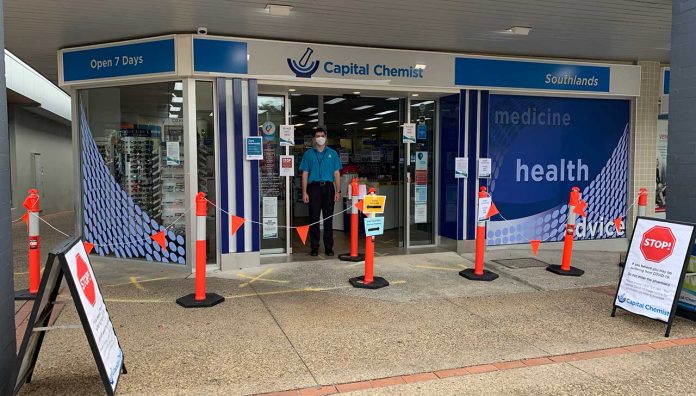Pharmacists have been caught between conflicting federal and state legislation while battling to provide the best possible care for patients during the coronavirus pandemic, according to PSA’s submission to the Senate Select Committee on COVID-19.
While legislative amendments, policy decisions and funding initiatives helped contain the novel coronavirus in Australia, pharmacists also faced ‘unnecessary barriers’ and situations where ‘policy decisions impacted on professional practice and hindered pharmacists in assisting patients and fulfilling professional obligations,’ PSA said.
This led to widespread confusion around issues such as digital image prescriptions, with pharmacists sometimes forced to ‘break the law to ensure patients received their medicines’.
Another early source of confusion was the federal government amending that legislation just 2 weeks after it was first introduced with new prescription requirements.
But the main pressure point for pharmacists was how long it took the different states and territories to implement the changes. In the most extreme example, it took 8 weeks for the Queensland government to ratify the new rules around digital image prescriptions.
This lack of clarity was a burden for all health professionals, but pharmacists were left bearing the brunt of the additional workload, PSA said.
Despite the challenges, the majority of Australia’s 5,700 community pharmacies remained open during the crisis, said PSA National President Associate Professor Chris Freeman, in order to provide essential care, medicines and supplies.
Yet pharmacists and their staff ‘felt forgotten’ by state and federal governments.
‘Community pharmacists remained open throughout the entire pandemic to deliver health care and meet the needs of patients, carers and the public,’ A/Prof Freeman said.
‘It is disappointing that pharmacists were not always fully consulted when policy and implementation decisions were being made, including those affecting the pharmacy profession.’
PSA’s recommendations
PSA’s 18-page submission put forward 17 recommendations to improve future official responses to a pandemic. The committee has until the end of June 2022 to deliver its findings.
Among the recommendations was the need for systematic medicine supply restrictions in time of emergency, with pharmacists given the legislative support to enforce such restrictions to allow equitable supply.
As the pandemic took hold in Australia, common medicines such as salbutamol inhalers and children’s paracetamol quickly became out of stock in community and hospital pharmacies across the country.
Despite this, medicine supply limits only came into force after the pharmacy sector, including PSA, appealed to the federal government.
‘While this measure was helpful to a certain degree, some patients felt that pharmacists were unfairly choosing to deny access to their medicines and many took out their frustrations on pharmacists and pharmacy staff,’ according to PSA’s submission.
Other recommendations include making continued dispensing arrangements permanent and allowing pharmacists to continue delivering medication management review services via telehealth beyond the pandemic.
A/Prof Freeman said the findings in the submission demonstrated the extraordinary strength pharmacists showed in supporting the public during an incredibly stressful time.
‘In putting forward this submission I hope the good work of pharmacists under extreme pressure during the COVID-19 pandemic is recognised, and our recommendations lead to positive change going forward that will help pharmacists support patients and all Australians,’ he said.
The submission follows PSA’s contribution to the Queensland Health, Communities, Disability Services and Domestic and Family Violence Prevention Committee inquiry into the Queensland government’s health response to COVID-19.
For a full list of PSA’s recommendations and to read the submission, click here.



 Professor Margie Danchin[/caption]
Professor Margie Danchin[/caption]

 Dr Peter Tenni[/caption]
Dr Peter Tenni[/caption]
 How should we deprescribe gabapentinoids, according to the Maudsley Deprescribing Guidelines[/caption]
How should we deprescribe gabapentinoids, according to the Maudsley Deprescribing Guidelines[/caption]



 Pharmacists have always prescribed, but they have the potential to prescribe much more
Pharmacists have always prescribed, but they have the potential to prescribe much more




